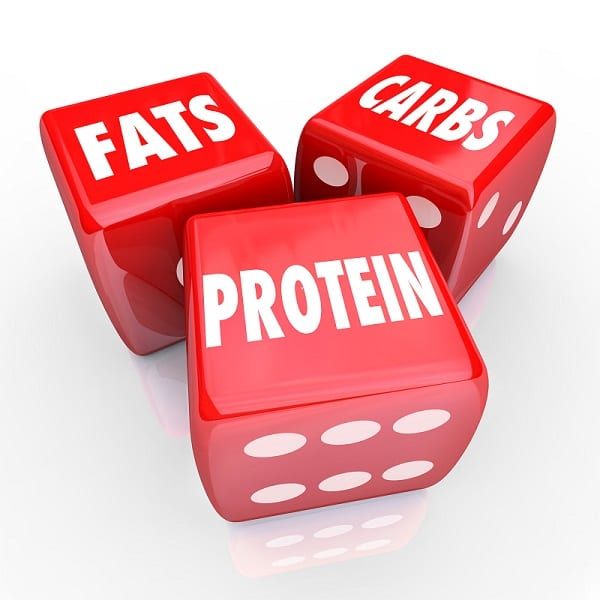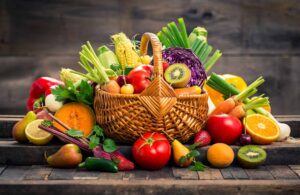Our diet relies heavily on carbohydrates for energy. They provide fuel for our bodies and brains. We need glucose from carbohydrates like rice, bread, pasta, potatoes, and fruit for our daily activities. Without enough carbohydrates, we can feel weak, tired, or have trouble concentrating. Not all carbohydrates are the same. Whole grains, fruits, and vegetables contain complex carbohydrates, which release energy slowly and keep us feeling full, while refined sweets and processed foods provide energy quickly but can cause fatigue. Find a balance and focus on healthier carbohydrates to maintain energy throughout the day.
Why Proteins Are the Body’s Building Blocks
Proteins are essential for growth, recovery, and strength. They are considered the body’s building blocks because they promote muscle growth, repair tissue, and support the immune system. Proteins are made up of amino acids, some of which are produced by our bodies, while others come from our diet. Proteins come from lean meats, fish, eggs, dairy products, legumes, and nuts. A low-protein diet can lead to fatigue, muscle weakness, and delayed healing. Protein helps us maintain our energy levels, boosts our metabolism, and promotes healthy hair, skin, and nails.
Fats are crucial in a balanced diet.
Fats are often considered unhealthy, but they are essential for a daily diet. They promote energy, nutrient absorption, and support brain and heart health. Olive oil, avocados, almonds, and oily fish all contain healthy fats that can fight heart disease and promote mental health. However, trans fats and saturated fats in processed and fried foods can seriously impact our health. A balanced diet with healthy fats provides long-lasting energy and nutrients. Instead of avoiding fat entirely, it’s better to focus on the quality and source of fat.
Carbohydrates, Protein, and Fat Work Together
While carbohydrates, proteins, and fats each play their own role, they work together to maintain health and energy balance. Protein repairs and rebuilds the body, carbohydrates provide quick energy, and fats aid in nutrient absorption. Consuming enough of all three nutrients ensures you don’t miss out on any. A balanced lunch of grilled chicken, cooked in olive oil, rice, and vegetables provides energy, essential nutrients, and healthy fats. A deficiency or excess of any nutrient can lead to poor physical function.
The Dangers of Excessive Carbohydrate Consumption
While carbohydrates are necessary, excessive intake, especially from processed foods like sugary drinks, pastries, and refined grains, can lead to health problems. Excessive carbohydrates store fat, leading to weight gain and an increased risk of diabetes and heart disease. Excessive consumption of refined carbohydrates can cause spikes and crashes in blood sugar levels, leading to drowsiness and cravings for sweets. It’s important to choose healthy grains, fruits, and vegetables over processed foods. The body needs carbohydrates, but healthier, slower-digesting carbohydrates are best.
The Dangers of Too Little or Too Much Protein
Protein is essential for health, but a balanced intake is just as important as carbohydrates. Insufficient protein intake can lead to muscle loss, weakened immunity, and slower recovery from illness or exercise. However, consuming too much protein, especially from processed or high-fat sources, can strain the kidneys and increase health risks. Instead of overdoing it on one food, aim for a moderate amount of protein at each meal, such as lean meat, fish, eggs, legumes, or dairy. A balanced protein intake helps the body repair, grow, and function properly without causing side effects.
Understanding a Healthy Fat Balance
Fats, like carbohydrates and proteins, can be good or bad depending on the source and the amount consumed. Omega-3 fatty acids from fish and flaxseed can improve heart health, reduce inflammation, and enhance brain function. Excessive consumption of trans fats from fast food and processed snacks can raise cholesterol and increase the risk of cardiovascular disease. Fats help the body absorb vitamins A, D, E, and K, so avoiding them can be harmful. To maintain a balanced diet, it’s wise to limit harmful fats and moderate healthy fats.
Building a Balanced Daily Plate
Instead of staying stuck in a rut, consider balance when planning your meals. A healthy diet consists of whole grains, starchy vegetables, lean meats or vegetable proteins, and a small amount of healthy fats from oils, nuts, or seeds. Every meal should include fruits and vegetables for vitamins, minerals, and fiber. This cooking style allows you to naturally consume the right amounts of carbohydrates, proteins, and fats without overthinking or following extreme diet trends. Ultimately, these moderate eating habits contribute to a lifestyle that promotes vitality and health.
Lifestyle Influences Dietary Needs
Age, activity level, and health status affect the balance of carbohydrates, proteins, and fats. Exercise and physical exertion may require additional protein and carbohydrates for muscle recovery and energy. Protein helps older adults maintain muscle mass and strength. The amount of fat and carbohydrates needed for weight loss may differ from that needed for weight gain or muscle building. Understanding these differences can help you develop a diet that works for everyone, rather than a one-size-fits-all approach.
Conclusion
A healthy diet relies on carbohydrates, proteins, and lipids. Proteins are responsible for building and repairing the body, carbohydrates provide energy, and lipids contribute to long-term nutrient absorption. Each nutrient should be consumed in moderation and from healthy sources. Choose whole grains, lean proteins, and healthy fats over processed carbohydrates, fatty meats, and unhealthy fats to maintain energy, health, and function. A balanced diet emphasizes variety, moderation, and consistency; small, daily choices can improve nutrition and long-term health.
FAQs
1. Why is it important to consume all three nutrients?
The body uses carbohydrates, proteins, and lipids differently. They each contribute to energy, tissue repair, and health.
2. Are low-carb or low-fat diets healthy?
A balanced diet is healthier than a diet limited to just one nutrient. Long-term nutrient restriction can be harmful to the body.
3. Which carbohydrates are healthy?
Whole grains, fruits, vegetables, and legumes are healthier sources of carbohydrates than refined grains and sweets.
4. How much protein should I consume daily?
Protein needs vary depending on age, activity level, and weight, but most people should consume protein at every meal.
5. Which fats are healthy?
Olive oil, avocados, almonds, seeds, and fatty seafood all contain unsaturated fats, which can support heart and brain function.




